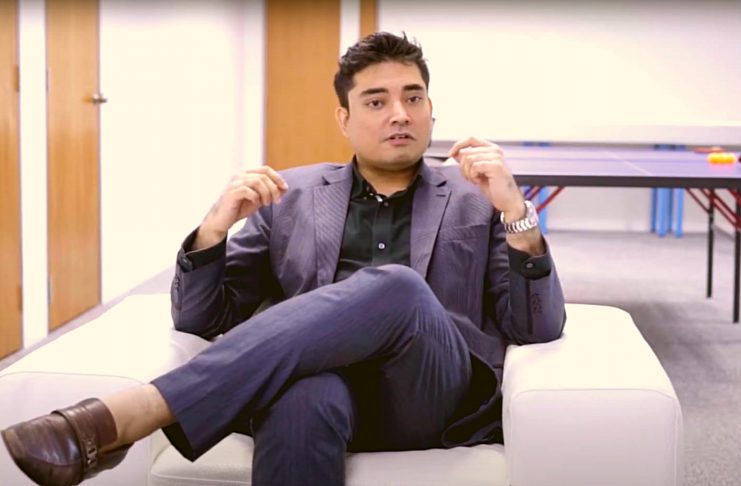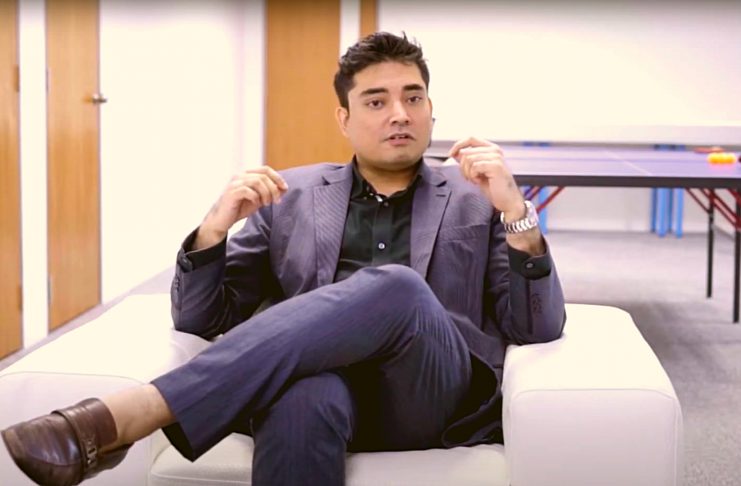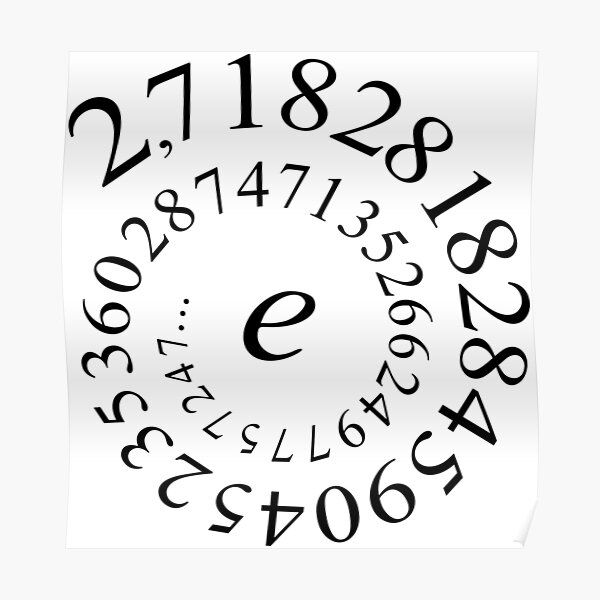Euler’s Number Exposed: Sancy Suraj’s Record-Breaking Memory Revelation
Sancy Suraj is a memory athlete from Singapore who has made headlines for his incredible feats of memorization. He has broken multiple memory records, including the Singapore record for reciting the most digits of pi and memorizing 1,119 digits of the mathematical constant Euler’s number in just 30 minutes. Suraj’s impressive memory abilities have earned him international recognition, and he continues to inspire others to improve their own memory skills.
How did you first get interested in memory feats, and what inspired you to take on the challenge of memorizing Euler’s number?

I first got interested in memory feats during my university days. As a computer science student, I realized that my memory was not up to par when it came to memorizing complex algorithms and programming languages. I began to look for ways to improve my memory and stumbled upon memory techniques such as the Method of Loci, also known as the Memory Palace technique. This technique involves associating information with specific locations in a familiar environment, and I found it to be a game-changer for my own memory abilities.
Eventually, my interest in memory techniques grew beyond just academic purposes. I began to explore more challenging memory feats and came across world records for memorizing pi digits, cards, and even names and faces. This inspired me to take on the challenge of pushing my own memory skills to the limit and attempting to break records.
When I heard about the record for memorizing Euler’s number, I was immediately intrigued. Euler’s number is a mathematical constant that has a never-ending decimal representation, making it incredibly challenging to memorize. The idea of pushing myself to see just how far I could go with my memory skills was exciting and motivating, and I felt confident in my ability to use the memory techniques I had learned to tackle this challenge.
Overall, my interest in memory feats was initially sparked by practical applications in my studies, but it quickly evolved into a passion for pushing myself to new limits and exploring the capabilities of the human mind. The challenge of memorizing Euler’s number was just one example of how I continue to challenge myself and push the boundaries of what I thought was possible with my memory.
Can you describe your process for memorizing such a large amount of information, and what kind of techniques did you use to aid your memory?
Of course! Memorizing large amounts of information requires a systematic approach that involves breaking down the information into smaller, more manageable chunks, and then using memory techniques to associate those chunks with something that is more easily remembered.
For memorizing Euler’s number, I used a technique called the Major System, which involves associating numbers with consonant sounds and then constructing words out of those sounds. This technique allowed me to create a story in my mind that I could use to remember the digits of Euler’s number.
I also used the Memory Palace technique, which involves associating information with specific locations in a familiar environment, such as a house or a street. For Euler’s number, I used a Memory Palace consisting of a familiar street that I knew well. I associated each digit with an image and placed those images at different locations along the street. Then, I mentally walked along the street, visiting each location and recalling the associated image and digit.
To help me keep track of my progress, I used a memory chart that I created in advance, which consisted of 10 rows of 10 digits each. As I memorized each row, I would check it off on the chart to keep track of how much progress I had made.
Overall, the key to successfully memorizing large amounts of information is to find a memory technique that works well for you, and then practice it consistently until it becomes second nature. It also helps to break the information down into smaller chunks and to use visualization and association techniques to make the information more memorable.
What was the most challenging aspect of memorizing Euler’s number, and how did you overcome any difficulties that you encountered?
The most challenging aspect of memorizing Euler’s number was the sheer volume of digits involved. Unlike memorizing pi, which has a recognizable pattern that can be exploited to help remember the digits, Euler’s number has no such pattern, making it more difficult to remember.
To overcome this challenge, I first had to find a way to break the number down into smaller chunks that could be memorized more easily. I did this by using the Major System to create a story out of the digits, where each digit was associated with a consonant sound and then combined into words. This technique allowed me to group the digits together into more manageable chunks and associate them with something that was easier to remember.
Another difficulty I encountered was maintaining focus and concentration over the course of the 30-minute time limit. Memorizing such a large amount of information can be mentally exhausting, and it can be easy to lose focus or become distracted.
To overcome this, I made sure to take breaks and pace myself throughout the memorization process. I also used techniques like visualization and association to help keep my mind engaged and focused on the task at hand.
Overall, the key to overcoming the challenges of memorizing Euler’s number was to find effective memory techniques that worked well for me and to stay focused and disciplined throughout the process. By breaking the number down into manageable chunks and using visualization and association techniques to make the information more memorable, I was able to successfully memorize 1,119 digits within the 30-minute time limit.
“Memorizing Euler’s number taught me that overcoming a seemingly impossible challenge requires breaking it down into smaller, manageable pieces and using effective memory techniques. It’s not just about memorizing the information, but also maintaining focus and discipline throughout the process.”
What does it feel like to hold a memory record like this, and what kind of impact has it had on your life?
Holding a memory record like this feels incredibly rewarding and validating. It is a testament to the countless hours of practice and hard work that I have put in over the years to develop my memory skills, and it is a source of pride for me to be recognized as one of the best memory athletes in the world.
In terms of impact on my life, setting memory records has opened up a lot of doors and opportunities for me. It has allowed me to meet and connect with other memory athletes from around the world, and to share my knowledge and expertise with others who are interested in improving their memory skills.
Setting memory records has also given me a sense of purpose and direction, as it has allowed me to focus my energy and efforts on something that I am truly passionate about. It has taught me the value of discipline, perseverance, and hard work, and has helped me to develop skills and qualities that are useful in all areas of my life.
Overall, holding a memory record like this is an incredibly fulfilling and enriching experience, and it has had a significant positive impact on my life in many different ways.
What advice would you give to someone who wants to improve their memory abilities, and how can they start building the kind of mental discipline required to tackle feats like this one?
The first piece of advice I would give to someone who wants to improve their memory abilities is to start small and be consistent. Memory is like a muscle, and just like with any other muscle, it takes time and practice to develop and strengthen. Start with something simple, like memorizing a short list of items or a phone number, and gradually work your way up to more complex challenges.
Another important piece of advice is to find memory techniques that work well for you. There are many different memory techniques out there, such as the Major System, the Method of Loci, and the Dominic System, among others. Experiment with different techniques to find the ones that work best for you and that you feel comfortable using.
Finally, building the kind of mental discipline required to tackle feats like this one requires a combination of focus, persistence, and determination. Set specific goals for yourself and work towards them consistently, even when it gets tough. Practice visualization and mindfulness exercises to help improve your focus and concentration, and find ways to stay motivated and inspired throughout the process.
Remember, improving your memory abilities is a journey, and it takes time and effort to see results. But with the right mindset, tools, and techniques, anyone can develop an incredible memory and achieve amazing feats of memorization.
“Memory is a journey, not a destination. Start small, find your techniques, and develop the mental discipline to persevere. With focus, persistence, and determination, you can achieve amazing feats of memorization and unlock the true potential of your mind.”
When asked about his interest in memory feats and what inspired him to tackle the challenge of memorizing Euler’s number, Suraj explained that he was initially drawn to the world of memory training after watching a documentary about memory champions. He was fascinated by their abilities and the potential of the human mind, and he began practicing memory techniques on his own. Over time, he honed his skills and developed a deep passion for memory training.
To memorize Euler’s number, Suraj employed a combination of memory techniques such as visualization and association. He broke the number down into smaller chunks and used a visual system to connect each chunk to a mental image. This allowed him to easily recall each digit of the number when needed. The most challenging aspect of memorizing Euler’s number, according to Suraj, was maintaining his focus and concentration for the entire 30-minute period. However, he overcame this difficulty by practicing mindfulness and visualization exercises to improve his mental discipline.
In terms of his long-term goals as a memory athlete, Suraj plans to continue pushing himself to new heights and to inspire others to do the same. He hopes to use his skills and experience to help others improve their memory abilities and to promote the benefits of memory training and mental discipline. Ultimately, he believes that memory training is an essential skill for success in all areas of life.
What memory feats do you plan on tackling in the future, and what are some of your long-term goals as a memory athlete?

As a memory athlete, I am constantly looking for new challenges and opportunities to push the boundaries of what is possible with the human mind. Some of the memory feats that I plan on tackling in the future include memorizing the digits of other mathematical constants such as pi, memorizing decks of cards in under a minute, and memorizing large amounts of information in various subjects such as history, science, and languages.
In the long-term, my goals as a memory athlete are to continue to push myself to new heights and to inspire others to do the same. I want to use my skills and expertise to help others improve their memory abilities and to promote the benefits of memory training and mental discipline. I also hope to continue to break records and to set new standards for what is possible with the human memory.
Ultimately, I believe that memory training and mental discipline are essential skills for success in all areas of life, and I want to help spread that message to as many people as possible. Whether through public speaking, coaching, or other means, I hope to use my skills and experience to make a positive impact on the world and to help others achieve their full potential.
“Memorizing is not just about retaining information, it’s about challenging the limits of the human mind and unlocking the full potential of our mental capabilities. As a memory athlete, my long-term goals are not just about breaking records, but also inspiring others to reach new heights and empowering them to achieve success in all areas of life through memory training and mental discipline.”
Sancy Suraj’s record-breaking memory feats serve as a testament to the incredible potential of the human mind. His dedication, focus, and mental discipline have allowed him to achieve remarkable feats of memorization and to inspire others to do the same. As Suraj continues to push himself to new heights and to spread the message of the importance of memory training, we can only imagine what incredible accomplishments he will achieve in the future.














